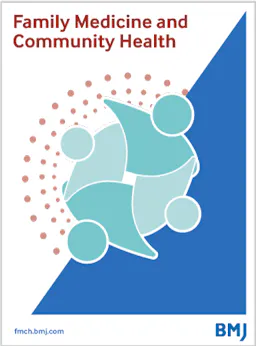Putting health workers at the centre of health system investments in COVID-19 and beyond
IF 2.6
3区 医学
Q1 PRIMARY HEALTH CARE
引用次数: 6
Abstract
The COVID-19 pandemic highlights the implications of chronic underinvestment in health workforce development, particularly in resource-constrained health systems. Inadequate health workforce diversity, insufficient training and remuneration, and limited support and protection reduce health system capacity to equitably maintain health service delivery while meeting urgent health emergency demands. Applying the Health Worker Life Cycle Approach provides a useful conceptual framework that adapts a health labour market approach to outline key areas and recommendations for health workforce investment—building, managing and optimising—to systematically meet the needs of health workers and the systems they support. It also emphasises the importance of protecting the workforce as a cross-cutting investment, which is especially important in a health crisis like COVID-19. While the global pandemic has spurred intermittent health workforce investments required to immediately respond to COVID-19, applying this ‘lifecycle approach’ to guide policy implementation and financing interventions is critical to centering health workers as stewards of health systems, thus strengthening resilience to public health threats, sustainably responding to community needs and providing more equitable, patient-centred care.将卫生工作者置于2019冠状病毒病及以后卫生系统投资的中心
新冠肺炎大流行凸显了长期投资不足对卫生劳动力发展的影响,特别是对资源紧张的卫生系统的影响。卫生工作人员多样性不足、培训和薪酬不足以及支持和保护有限,降低了卫生系统在满足紧急卫生需求的同时公平维持卫生服务提供的能力。应用卫生工作者生命周期方法提供了一个有用的概念框架,该框架调整了卫生劳动力市场方法,以概述卫生劳动力投资的关键领域和建议——建设、管理和优化——以系统地满足卫生工作者及其支持的系统的需求。它还强调了保护劳动力作为一项交叉投资的重要性,这在新冠肺炎等健康危机中尤为重要。尽管全球大流行刺激了对卫生工作人员的间歇性投资,以立即应对新冠肺炎,但应用这种“生命周期方法”来指导政策实施和融资干预对于将卫生工作人员作为卫生系统的管理者,从而加强对公共卫生威胁的抵御能力至关重要,可持续地满足社区需求,并提供更公平、以患者为中心的护理。
本文章由计算机程序翻译,如有差异,请以英文原文为准。
求助全文
约1分钟内获得全文
求助全文
来源期刊

Family Medicine and Community Health
PRIMARY HEALTH CARE-
CiteScore
9.70
自引率
0.00%
发文量
27
审稿时长
19 weeks
期刊介绍:
Family Medicine and Community Health (FMCH) is a peer-reviewed, open-access journal focusing on the topics of family medicine, general practice and community health. FMCH strives to be a leading international journal that promotes ‘Health Care for All’ through disseminating novel knowledge and best practices in primary care, family medicine, and community health. FMCH publishes original research, review, methodology, commentary, reflection, and case-study from the lens of population health. FMCH’s Asian Focus section features reports of family medicine development in the Asia-pacific region. FMCH aims to be an exemplary forum for the timely communication of medical knowledge and skills with the goal of promoting improved health care through the practice of family and community-based medicine globally. FMCH aims to serve a diverse audience including researchers, educators, policymakers and leaders of family medicine and community health. We also aim to provide content relevant for researchers working on population health, epidemiology, public policy, disease control and management, preventative medicine and disease burden. FMCH does not impose any article processing charges (APC) or submission charges.
 求助内容:
求助内容: 应助结果提醒方式:
应助结果提醒方式:


